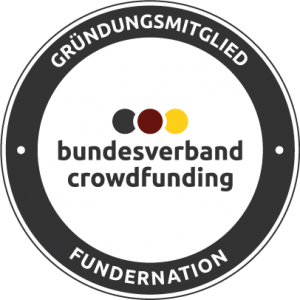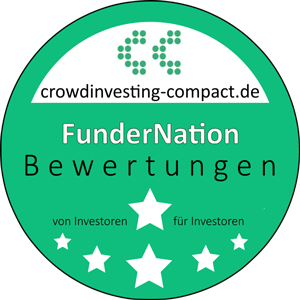Funded! Dieses Projekt hat das Fundraising erfolgreich abgeschlossen.
Description
Description
Short description
*For all investors investing until 23.07.2023 inclusive, a company valuation of 11.400.000 € instead of 12.000.000 € applies.
Revolutionary treatment approaches for metabolic diseases: The subcutaneous adipose tissue reveals new perspectives
Diseases such as Type-2-Diabetes, fatty liver and cardio-vascular diseases are still considered chronic-progressive and incurable, and there is no personalized medicine for them. A key reason for this is that the medical potential of the subcutaneous adipose tissue has so far been widely neglected. The Subcutaneous adipose tissue (SAT) is a metabolically highly active organ and directly involved in the development of metabolic diseases. Its activity is controlled by specific mRNAs (messenger RNAs).
At Lipocyte BioMed, we have recognized that these mRNAs of the SAT represent a highly effective new access point for the diagnostics and therapeutics of these diseases. Therefore, we are pioneers in the application of the mRNAs of the SAT for medical purposes. Our innovations allow us to easily analyze the complex mRNA patterns of a patient's SAT. On this basis, we have developed diagnostic tests for the personalized treatment of patients. In the future, mRNA-based personalized therapy concepts for the recovery of SAT will also be incorporated.
We develop our patented products in cooperation with renowned university partners, such as the UKE in Hamburg. There are already contacts with a number of strategic partners for the market launch. The markets for these diseases are invariably huge; they represent the largest medical submarkets in the world.

About Lipocyte BioMed GmbH
Lipocyte BioMed GmbH was founded in 2014 and continues the long-standing research of the ZHG Center for Human Genetics at the University of Bremen. As a pioneer in the use of mRNAs of the subcutaneous adipose tissue (SAT) for medical purposes, Lipocyte was able to secure a number of key patents. It is our goal to provide access to personalized medicine for patients who until now have only received standardized treatment, thereby significantly reducing their suffering and perhaps one day even curing them. Among other things, the funds raised in this financing round will be used to prepare the market entry of the first diagnostic tests with a feasible and cost-optimal strategy.

Team
Uwe Jensen
CEO
Wolfgang Hierneis
CEO
Dr. Markus Klemke
Head of Technology
Dr. Helge Thies
Head of Research and Development
Innovation
Our method allows for the first time the analysis of mRNA patterns of a patient's subcutaneous adipose tissue (SAT) using minimal samples. This is important because it allows for easy, painless, and ambulatory sampling.
Analysis of the mRNAs of the SAT is performed using quantitative real-time PCR. The complex mRNA patterns are deciphered with the help of innovative neuronal statistics; for this purpose we use, among other things, SOMs (self-organizing maps) with a constantly growing database.

For diagnostic purposes, this method allows the assignment of patients to specific subgroups for which the outcomes of individual therapy options are specified. This allows an optimal therapy choice to be made for each individual patient. In principle, the approval of in vitro diagnostics is relatively uncomplicated.
In the context of therapy, the method enables concepts for the directed control of mRNAs. Therefore, a restoration of the functionality of the SAT can be achieved for the first time.


Products
Diagnostic tests
DiaBar enables prediction of whether a patient will benefit from bariatric surgery (stomach reduction) with regard to their Type-2-Diabetes and fatty liver disease. This makes bariatric surgery a real treatment option for Type-2-Diabetes.
HepDia enables for the first time the differentiation of non-inflammatory and inflammatory stages of fatty liver disease, which is crucial for treatment. Until now, this has only been possible with a risky and painful liver biopsy.
The following tests are planned for 2024
DiaSquare will enable the selection of optimal patient-specific therapies for Type-2-Diabetes.
MetaPro will enable very early (years earlier than today) prediction of metabolic disease risk and thus very early and effective prevention.
Further tests on a number of additional indications, or on alternative further therapy options, are planned.
Therapy concepts
Our therapy concepts, which will also be implemented starting in 2024, are aimed at healing dysfunctional adipose tissue, depending on its cause.
TC-Mat aims to mature immature adipose tissue.
TC-Dif aims to regenerate stressed and aged adipose tissue through some de-differentiation.
TC-Inf regulates the inflammatory tendency of hyperinflammatory adipose tissue.
Unique selling points
- The use of mRNAs of subcutaneous adipose tissue represents a platform technology that opens up tremendous new potential for the treatment of metabolic diseases.
- We are first-movers in this platform technology. This has been confirmed both by a market research and by the comprehensive research conducted by the German Patent Office, which is known to be very rigorous.
- Our patents and patent applications secure the medical use of the mRNAs HMGA2, PPARG, ADIPOQ and IL-6 for diagnosis in the context of Type-2-Diabetes and fatty liver disease.
- In addition, we have very high levels of other Know-Hows. This includes our "frozen SOPs" for assay implementation as well as our training sets for neural statistics and the continuously growing database.

Business model and distribution
In the EU, diagnostic tests are distributed by Lipocyte BioMed itself and overseas by cooperation partners (licensees).
Sales are targeted at doctors and clinics. In addition to the direct medical benefits, physicians gain advantages through more efficient patient care and through new and additional revenue streams. The latter is particularly important, since metabolic diseases are lowly compensated for doctors but are subject to very intensive consultation.
There are already contacts with specialized sales organizations and with strategic partners for market entry.
Therapy concepts will be developed until the end of the so-called preclinical phase. They are to be licensed out before the start of the cost-intensive clinical trials.
Also in this case we have already established contacts in the market.
Market and target group
The target group is physicians, as they make the decision on the use of the tests. First, Lipocyte BioMed's tests answer crucial questions relevant to therapy. This includes, for example, the decision as to whether an expensive stomach reduction, which is always an ethically problematic intervention on a healthy organ, is a promising and thus justifiable treatment option for a Type-2-Diabetic patient. This also includes the clarification of whether an inflammation of the fatty liver is present, which up to now can only be clarified by a risky and painful liver biopsy, which is essential for the therapy, and other questions. Second, however, physicians basically have two fundamental problems with metabolic patients: These are very consultation-intensive and require a lot of time, while doctors can only charge relatively little for such cases. Lipocyte's tests provide physicians with high-quality and efficient tools that enable them to optimize treatment efficiently.
The markets for metabolic diseases are the largest segments of the healthcare market worldwide. For Type-2-Diabetes alone, more than 900 billion USD is spent directly and indirectly each year.

Furthermore, metabolic diseases are evenly distributed and therefore also affect wealthy patients. Due to the size of the market, the number of potential self-pay patients is also very large.
Objectives and use of capital
The raised funds will be used to make the first diagnostic tests ready for the market and to further expand marketing and sales. In particular, cooperation partners for sales, test processing and laboratory services are to be involved for this purpose. Furthermore, the first steps for the development of the therapy concepts, i.e. cell culture trials and preclinical testing, are to be started.
As part of the international commercialization of the tests and technology, it is intended to cooperate with appropriate consultants who will support in the licensing of the tests as well as the preclinical results.

An overview of the company's three-year planning is given below:

Successes to date
| 2014 | Foundation Financing by BAB (Bremer Aufbaubank of the State of Bremen). |
| 2015 | First studies; first patent applications |
| 2016 | Further patent applications |
| 2017 | First patent granted; further round of funding; "frozen SOPs", i.e. defined medical and laboratory procedures for implementing the assay |
| 2019 | Start of cooperation with UKE (University Medical Center Hamburg-Eppendorf) |
| 2020 | Funding by aescuvest |
| 2022 | Results of UKE studies; further patent applications |
| 2023 | Intention to grant two patents; first study with Leipzig University; further studies with UKE; preparation of the first publication |
Top reasons for an investment
- mRNAs of subcutaneous adipose tissue are a breakthrough technology for metabolic diseases, enabling entirely new avenues in their personalized treatment
- We are first-mover in this breakthrough technology
- First diagnostic tests ready for market this year: the methodology (technology) has already been developed, tested and patented
- High exit potential in the medium term








